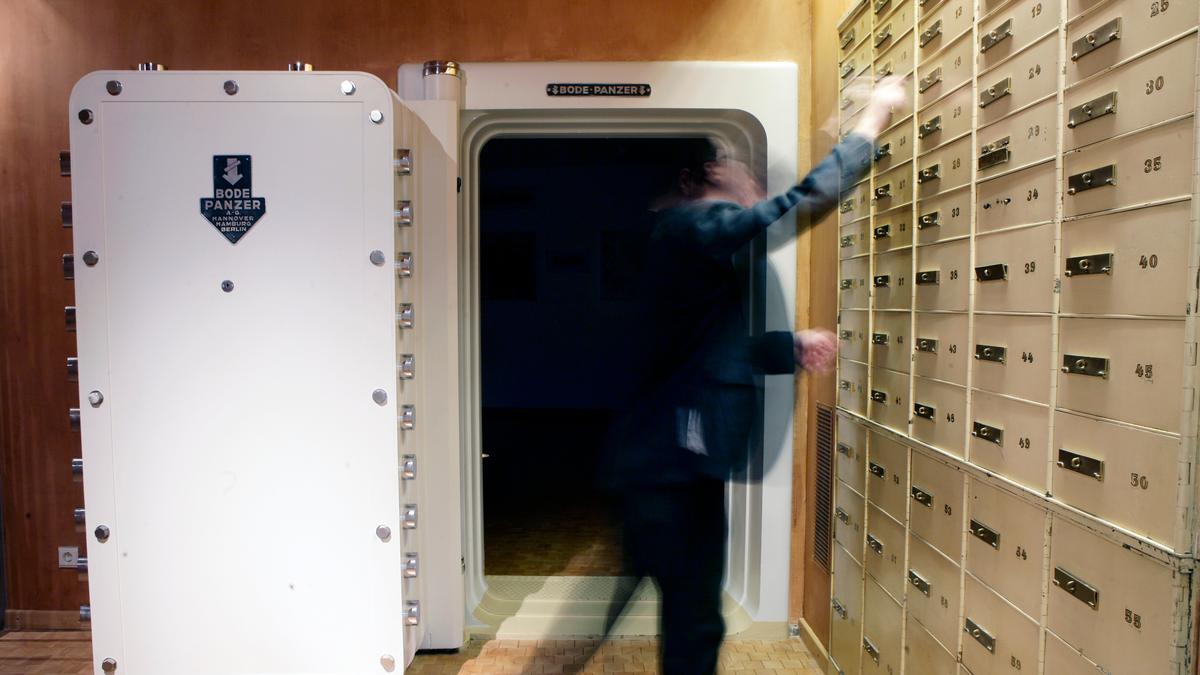Luxembourg is among the world’s top five countries for facilitating financial secrecy, according to a report from the Tax Justice Network.
The network’s 2025 edition of the Financial Secrecy Index was published on Tuesday, and Luxembourg’s fifth-place spot remains unchanged from the previous ranking compiled in 2022.
The index ranks countries defined as “most complicit in helping individuals to hide their finances from the rule of law”.
To do this, it takes into account two main factors to determine a country’s role in enabling financial secrecy – first the degree of tolerance of financial secrecy permitted by a country’s legislation, known as the ‘secrecy score’ and second, the extent of the financial services that the country provides to non-residents, an indicator known as the Global Scale Weight (GSW), which is calculated on the basis of IMF statistics.
The top four spots also remain unchanged from the previous edition in 2022, with the US again ranked first for financial secrecy, following by Switzerland, Singapore and Hong Kong.
10.84% of offshore financial services provided by Luxembourg
It is this second factor, the GSW, that weighs particularly heavily on Luxembourg. The country accounts for 10.84% of all offshore financial services provided worldwide, the report found.
Only the United States, which alone accounts for almost a quarter of GSW (24.54%), and the United Kingdom (15.74%), are home to more offshore financial services.
In terms of the “secrecy score”, the extent to which the country’s law permits financial secrecy, Luxembourg scored 56 out of 100, placing it outside the top 100 (out of 141 countries).
Although the country’s legislation generally scores well, the report highlights a number of potential loopholes in the Grand Duchy, including in the registration of trusts, the freeport, the practice of offering advance tax rulings to companies, and transparency concerning the beneficial owners of limited liability companies.
Luxembourg’s latest national risk assessment of money laundering, published by the justice ministry last month, echoed some of the same concerns raised by the Tax Justice Network.
The national risk assessment stated that trusts pose a “very high” risk of being misused for money laundering.
Legal entities filing with Luxembourg’s business register may also “be abused to commit crimes”, the report by the ministry added, noting that the number of registrations rose from 139,000 in 2020 to 146,000 three years later. The vast majority of beneficial owners listed – around 60% – do not reside in Luxembourg, according to the assessment.
‘Jekyll and Hyde’ stance of EU countries
Luxembourg is not the only EU country to feature prominently in the Tax Justice Network’s rankings, as the Grand Duchy is followed by Germany (6th) and the Netherlands (7th).
Other EU countries include the Republic of Ireland (14th), Cyprus (17th), France (21st), Italy (26th) and Belgium (30th).
The position of many EU countries towards financial secrecy was described by the Tax Justice Network as a “Jekyll and Hyde” approach.
While they adopt tax transparency and cooperation instruments, “most EU countries apply these mechanisms selectively, or even deliberately less transparently when it comes to cooperating with low- and middle-income countries”, noted the Tax Justice Network. “In some cases, they completely bypass the international instruments they have ratified.”
More specifically, TJN stated that “more than half of EU countries (56%) use a little-noticed loophole in international law to protect non-EU tax evaders from prosecution”.
TJN is targeting the Convention on Mutual Administrative Assistance in Tax Matters, an international instrument that allows countries to help each other recover taxes owed by identified tax evaders, particularly when a taxpayer hides undeclared wealth in another country.
While assistance is compulsory between EU member states, it is not with non-EU countries. It is therefore possible to exercise a ‘reservation’ in order to refuse to co-operate with other countries outside the bloc.
In practice, not only Luxembourg, but also Austria, Cyprus, Germany, Croatia, Ireland, Italy, Latvia, Malta, Poland, Portugal, Slovenia and Slovakia have made use of such reservations in the past, the Tax Justice Network said, which facilitates “the circulation of dirty money and undermines the foundations of the rule of law”.
The Tax Justice Network has been a repeated critic of Luxembourg’s tax policies. A report by the network in December concluded that the country remains a key facilitator of tax avoidance and is part of an axis of countries responsible for more than a third of all tax losses suffered by nations worldwide.
The Grand Duchy scored highly in several areas in its 2022 country inspection by the global anti-money laundering watchdog FATF and joint top in a review of 35 countries last year of its system of checks and controls on so-called “gatekeepers”, such as lawyers, accountants and real estate agents.
While Luxembourg was credited for its technical compliance – what laws the country has in place – and its cooperation with international counterparts in the 2022 inspection, it failed to achieve the highest possible score for the effectiveness of its anti-money laundering measures in any of the 11 areas examined.
Luxembourg’s finance ministry did not respond to a request for comment from the Luxembourg Times on the latest Tax Justice Network report.
(This article was orginally published by Virgule. Machine translated, with editing, adaptation and additional reporting by John Monaghan.)
